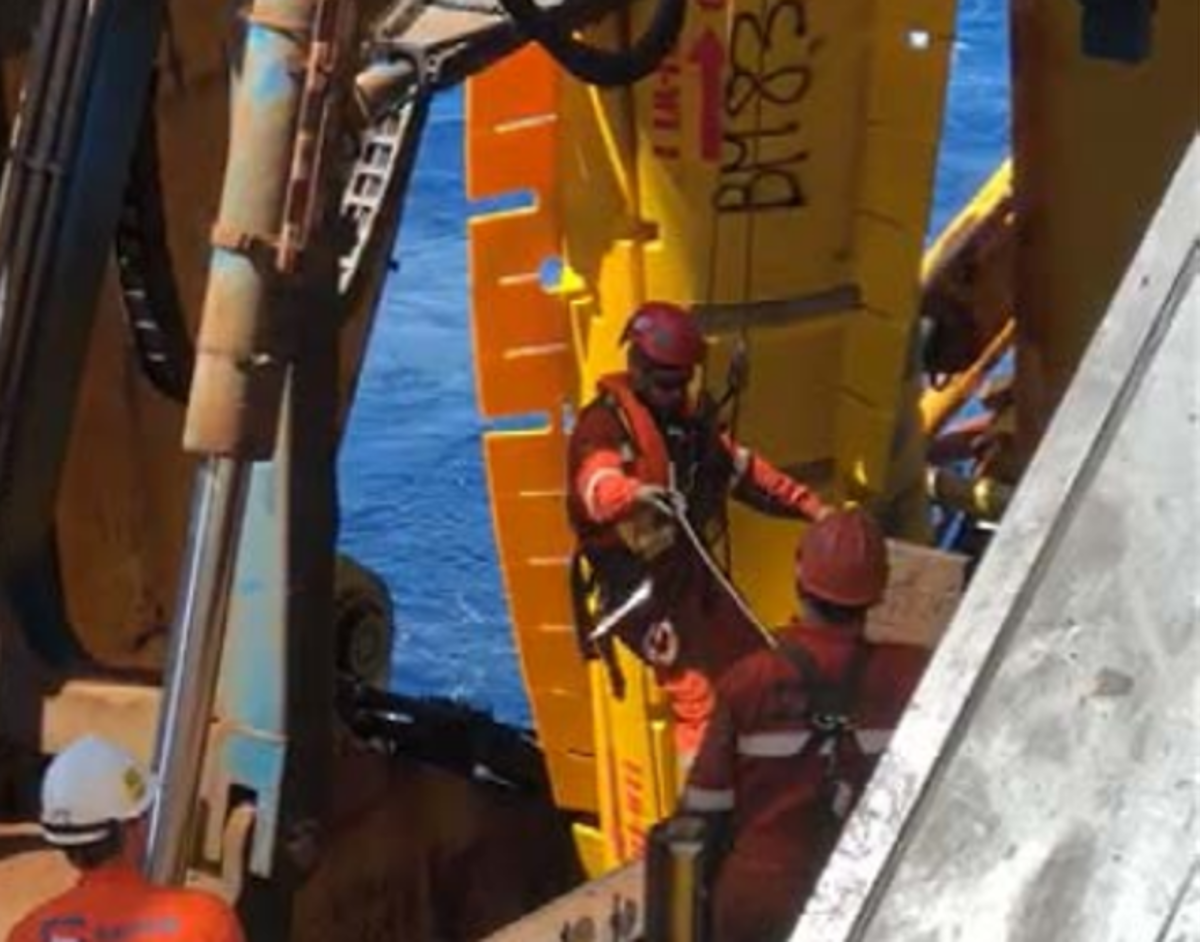Rope access technician slipped and dislocated shoulder
- Safety Flash
- Published on 3 October 2023
- Generated on 10 February 2026
- IMCA SF 23/23
- 2 minute read
Jump to:
A rope access technician dislocated his right shoulder while accessing the vessel transom port-side platform, following buoyancy module pad retrieval from the pipe string.
What happened?
Upon reaching the buoy loader area, the rope access technician climbed on top of the platform handrail, lost grip when reaching for the handrail, and fell approximately 1 m.
What went wrong?
The rope access technician lost grip after stepping with both feet on the wet and slippery handrail (angled stiffener).
Due to the wet, slippery environment and due to one grease-contaminated glove, he was unable to sustain his body weight with his hands and fell simultaneously rotating his body which was still connected to the ropes, leading to a dislocated shoulder.

Rope access technician lost grip after stepping on slippery handrail
What was the cause?
Our Member noted the cause as inadequate risk planning and risk assessment.
Lessons and actions
- For rope access operations in particular, task planning and Job Safety Analysis should be exhaustive and detailed.
- Taking shortcuts, no matter how trivial, has the potential to trigger a chain of events that can lead to an incident.
Our Member:
IMCA Safety Flashes summarise key safety matters and incidents, allowing lessons to be more easily learnt for the benefit of the entire offshore industry.
The effectiveness of the IMCA Safety Flash system depends on the industry sharing information and so avoiding repeat incidents. Incidents are classified according to IOGP's Life Saving Rules.
All information is anonymised or sanitised, as appropriate, and warnings for graphic content included where possible.
IMCA makes every effort to ensure both the accuracy and reliability of the information shared, but is not be liable for any guidance and/or recommendation and/or statement herein contained.
The information contained in this document does not fulfil or replace any individual's or Member's legal, regulatory or other duties or obligations in respect of their operations. Individuals and Members remain solely responsible for the safe, lawful and proper conduct of their operations.
Share your safety incidents with IMCA online. Sign-up to receive Safety Flashes straight to your email.